Five Simple Reasons Your Solos Sound Cheap
Your guitar solos will always sound a little predictable to your own ear. But what if you’re doing something that’s causing your solos and lead work to sound bland?
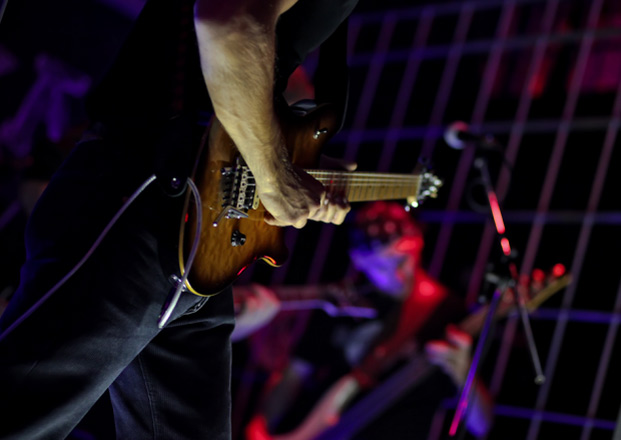
To some degree, your guitar solos will always sound a bit predictable to your own ear.
After all, you listen to them all the time and you’re painfully familiar with your own playing style. So it sort of has the same effect that listening to a song over and over again would have.
I remember one night I stayed at a friend’s house when I was maybe 10 years old, and he put “All Star” (yep, the Smash Mouth version) on repeat and let it play all night after we had went to bed.
I listened to it through seven hours of sleep. That’s a long haul in 10-year-old time.
Thinking back, I’m surprised I tolerated it; especially since I wasn’t a fan of the song to begin with. I know that ever since, I’ve avoided that song like the plague.
So there is some truth to the old adage that familiarity breeds contempt, or at least boredom.
That’s part of the reasons your solos sound cheap. You’re simply familiar with them and probably tired of hearing them every time you pick up your guitar.
What if it’s more than that?
But what if you’re doing (or not doing) something that’s causing your solos and lead work to just sound bland and tasteless?
Maybe. Let’s dig in.
We should first point out that a good solo isn’t just technical; it’s emotional. In fact, a solo that’s emotional and not so technical is often going to have a greater impact than something that’s highly technical but lacks that emotional drive.
So let’s examine some simple reasons that our solos can fall flat and become ineffective.
1. We play above our technical comfort level.
It’s tough to impress others with a technical wow-factor, but it’s even more difficult to impress ourselves.
We often tend to play too fast or overly technical when we’re soloing, because we’re seeking to play at a technical level that’s beyond our capability. That means we try to cram more speed and more notes into a short amount of time, which simply leads to poor-sounding solos.
Playing within our comfort zone means we don’t “max out” our speed when we’re performing or writing music we actually intend to play in front of people.
Pushing our skill limit shouldn’t be something we do in an effort to entertain.
Instead, we should seek to play safely within our comfort zone and save the technical heavy-lifting for practice sessions.
2. We ignore our melodic responsibilities.
Lead guitar players are ultimately responsible for carrying melody at certain points in a song.
While this is often the job of a lead vocalist, the guitar player takes over during fills, short turnarounds, guitar solos and any note-by-note progression that comes to the foreground of the music.
That’s melody. And a good melody should be engaging, thoughtful and emotionally influential.
Fast, technical playing can be a part of that, but it’s never a requirement, as many of music’s most memorable melodies are not incredibly technical.
Think about the playing of David Evans (the Edge) of U2.
His stuff is seldom highly technical but always emotionally engaging. Thus the heart of the song and musical quality are always high. Ignoring that aspect of our solos makes them dry and tasteless, at which point they can’t be helped by adding more technical difficulty.
3. Muscle memory
I know that when I start to build more speed in my solos, there are distinct patterns my fingers want to follow. If I’m not intentional about writing and tracking solos, those patterns will prevail and dominate my sound when I’m soloing, especially when improvising. To varying degrees, we all have this tendency.
Fighting it takes some time and intentionally practicing the movements that don’t come naturally to you. For example, you might be really comfortable with the following run:
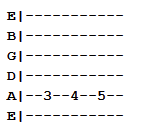
While this movement might feel completely foreign and uncomfortable:
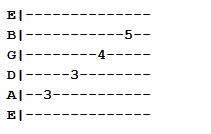
If you want to start expanding your solos and improving the variety you get from them, targeting these problem areas is something you’ll need to be intentional about. Simply look for movements you aren’t comfortable with and repeat them like you would an exercise.
You could take the example we’ve just used and run through it up each fret.

As you develop comfort with more diverse movements, your solos will begin to sound far less stale and repetitive.
4. You have an expectation that’s too high.
Keep in mind that your sound doesn’t always have to be completely reinvented every time you play. In fact, many of the great guitar players of our day have distinct qualities and a feel to their solos that stamp them with a trademark.
Take Godsmack’s Tony Rombola, for example. Most of his solos follow a simple pentatonic pattern and are predictably similar. Though they always sound good and drive the song forward.
So it’s not always bad to be predictable, provided you’ve found something that works and that people like.
5. Your effects are misplaced.
Rarely is an electric guitar (or even an acoustic guitar) in a lead role without some kind of effect. Consider the possibility that you can have one of three different problems when using effects and playing lead.
• Too much saturation.
• Not enough saturation.
• Poorly tuned or placed effects.
Simply put, you can over-use effects, under-use them or simply use them in the wrong place. Without a scripted manual to address every musical scenario, we’ve got to do some experimenting and tweaking when it comes to adding effects to our solos.
And often times it’s not a concrete discipline.
Think about Billy Corgan’s solo on “Cherub Rock.” It’s a distorted guitar with a slow flanger in the background. Who would have thought that a flanger would sound so good there? He managed to balance a noticeable effect without crowding out the melody of the solo and making the sound seem “fitted” to where it was in the song.
Thus the only proven method is to do your own testing and tweaking.
What’s your problem area?
Most guitarists struggle with one or all of these at one point or another. In an objective assessment of your own playing, which one resonates the most with you as an area that needs work?
Whatever that is, work on it first.
Because maybe you’re great at placing effects, but you don’t know the first thing about melody. It all depends on how you’ve learned the instrument and what you’re used to focusing on. Regardless, some examination of your playing and intentional practice will go a long way toward fixing it.
Flickr Commons Image Courtesy of Pensiero
Robert Kittleberger is the founder and editor of Guitar Chalk and Guitar Bargain. You can get in touch with him here, or via Twitter, Facebook and Google Plus.
Get The Pick Newsletter
All the latest guitar news, interviews, lessons, reviews, deals and more, direct to your inbox!
Bobby is the founder of Guitar Chalk, and responsible for developing most of its content. He has worked with leading guitar industry companies including Sweetwater, Ultimate Guitar, Seymour Duncan, PRS, and many others.
“There are so many sounds to be discovered when you get away from using a pick”: Jared James Nichols shows you how to add “snap, crackle and pop” to your playing with banjo rolls and string snaps
Don't let chord inversions bamboozle you. It's simply the case of shuffling the notes around
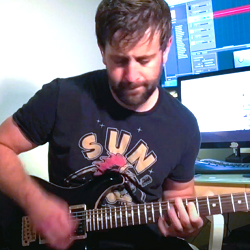






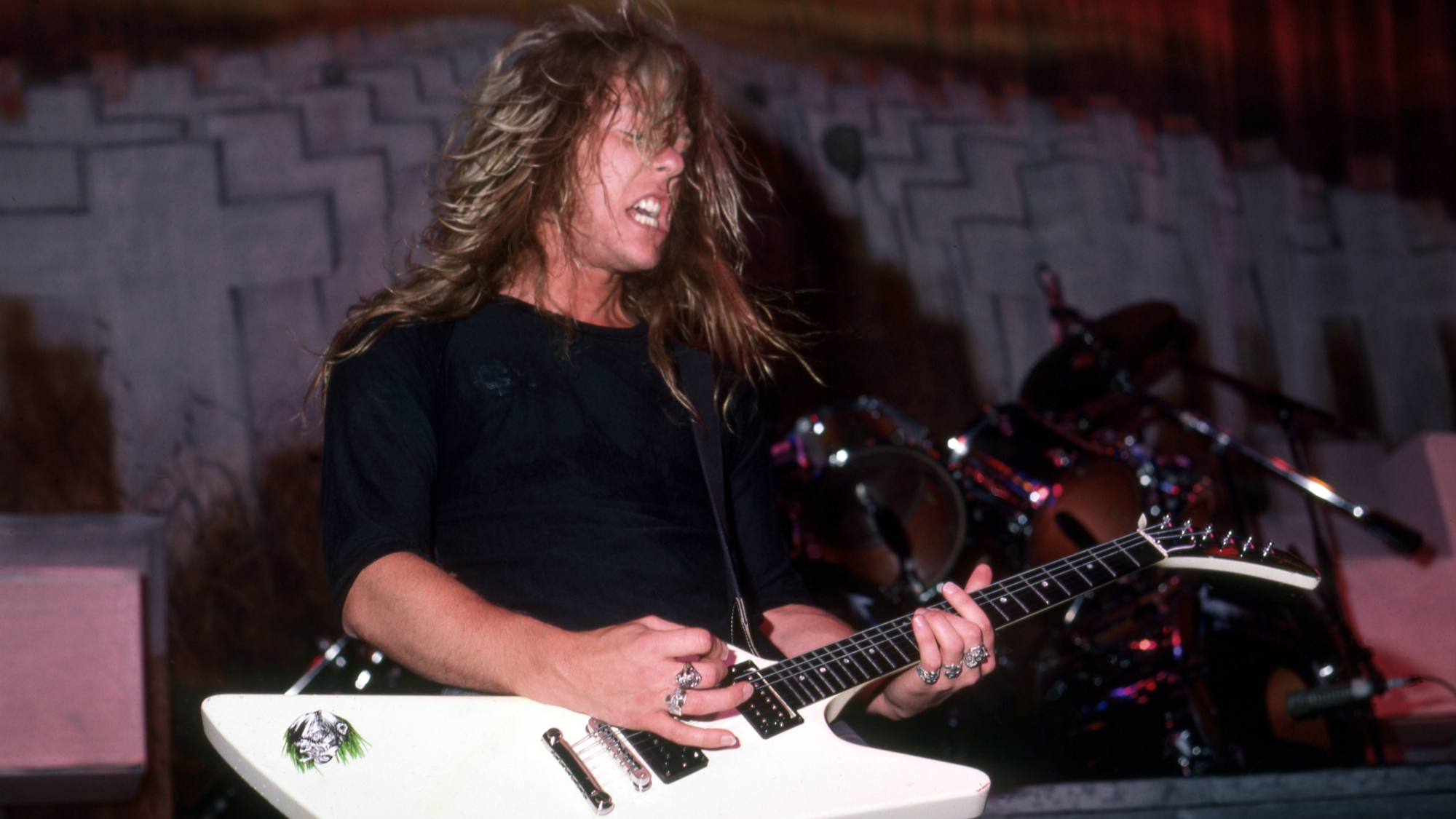
![Joe Bonamassa [left] wears a deep blue suit and polka-dotted shirt and plays his green refin Strat; the late Irish blues legend Rory Gallagher [right] screams and inflicts some punishment on his heavily worn number one Stratocaster.](https://cdn.mos.cms.futurecdn.net/cw28h7UBcTVfTLs7p7eiLe.jpg)


